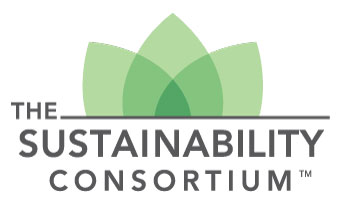Cotton Incorporated Looks to Move Sustainability Forward
Tempe, AZ – Cary, N.C.-based Cotton Incorporated., the research and promotional organization for cotton, has joined The Sustainability Consortium. Jointly administered by the University of Arkansas and Arizona State University, The Sustainability Consortium is an independent group of organizations working to develop tools to improve the sustainability of consumer products.
“Cotton Incorporated has a track record of promoting sustainable practices along the cotton supply chain,” said Janet Reed, associate director of environmental research for Cotton Incorporated. “Membership in The Sustainability Consortium presents us with an opportunity to further engage with like-minded organizations.”
The efforts at Cotton Incorporated to influence positive environmental change along the cotton supply chain are plentiful. Most recently, a comprehensive, peer-reviewed cradle-to-grave life cycle inventory and assessment was completed to track the environmental impact of cotton products at every stage of production, manufacturing and consumer usage. In addition, the company oversees more than 400 agriculturally focused projects each year. The majority of these projects are aimed at maximizing production efficiencies of water and land and reducing chemical inputs. Collectively, this work not only helps reduce environmental strain, but also reduces costs for the industry as a whole.
“We view ourselves as educators and facilitators, as well as active participants in the sustainability world,” said Reed. “We also work with textile-related companies on product testing and recommendations before they are taken to market, and we look closely at the consumer side to keep our constituents informed on consumer habits and attitudes.”
One of the consumer efforts — the trademarked “Cotton. From Blue to Green” denim drive — recycles used denim into housing insulation. The denim-based insulation offers several advantages to fiberglass alternatives, including superior sound and temperature retention. The insulation is donated to communities in need through projects like Habitat for Humanity. Moving forward, Cotton Incorporated plans to build on its already successful practices and expand its educational outreach to the public.
“In addition to ongoing agricultural research, we plan to create a consumer-focused marketing program to call attention to the fact that altering laundering habits can make a big difference,” said Reed. “A great deal of the environmental impact lies in the behaviors of consumers.”
“We are pleased to welcome Cotton Incorporated to the table,” said Sarah Lewis, manager of the Food, Beverage and Agriculture Working Group for The Sustainability Consortium. “The impact of this organization’s work — both in the area of sustainability and otherwise — has long-lasting implications for many other fields and organizations. Membership in The Consortium will allow the work of Cotton Incorporated to help others, and will also introduce their representatives to new ideas and approaches to sustainability.”






